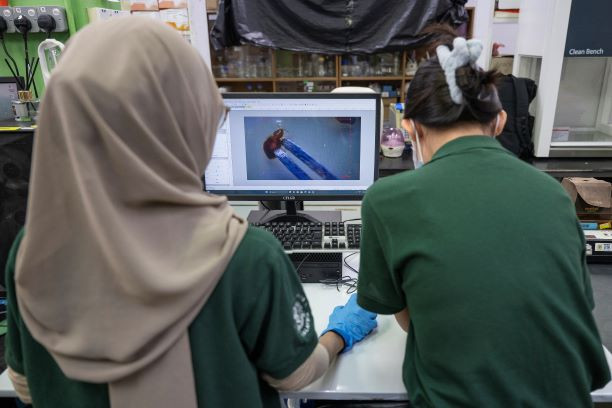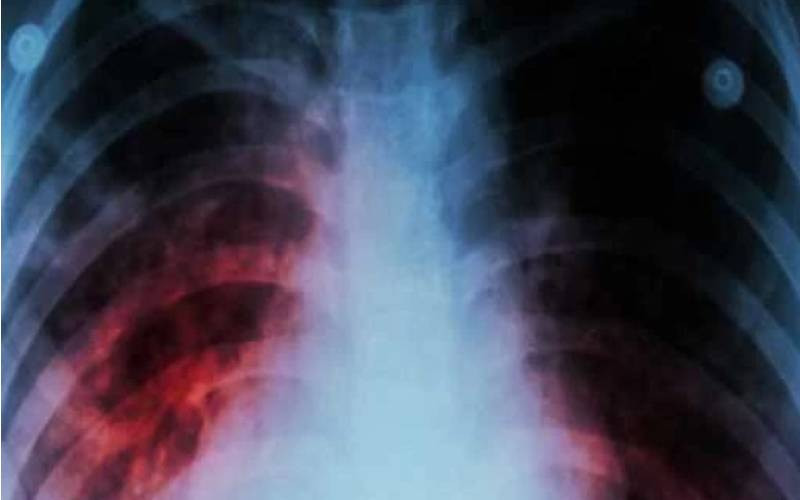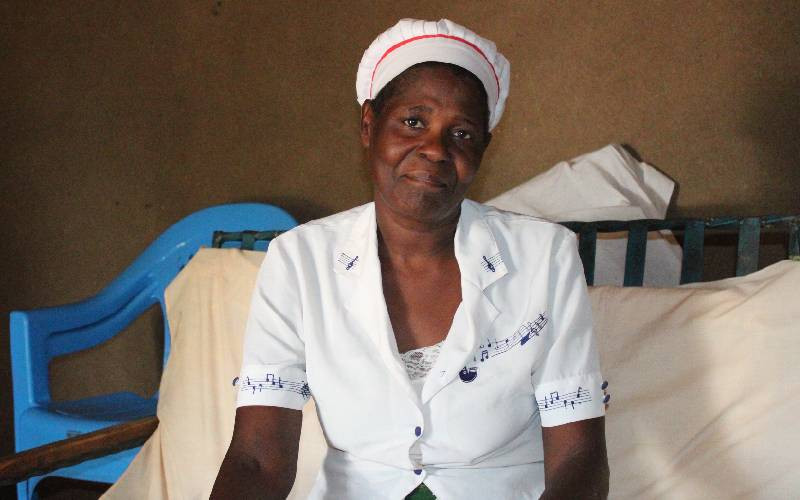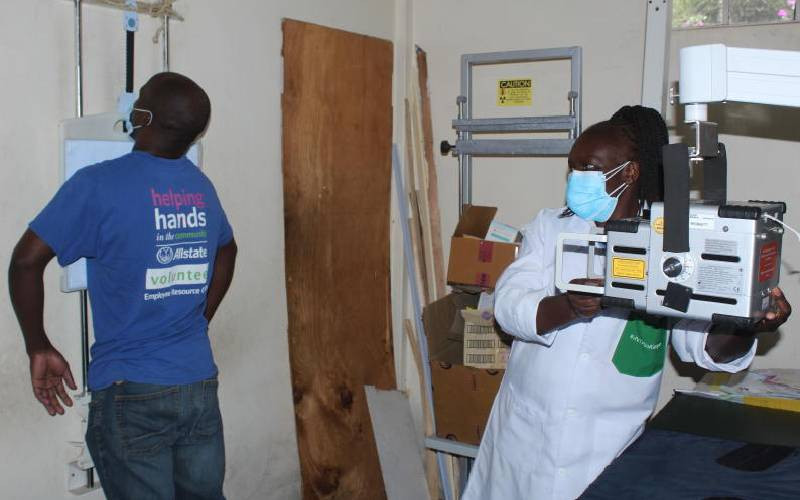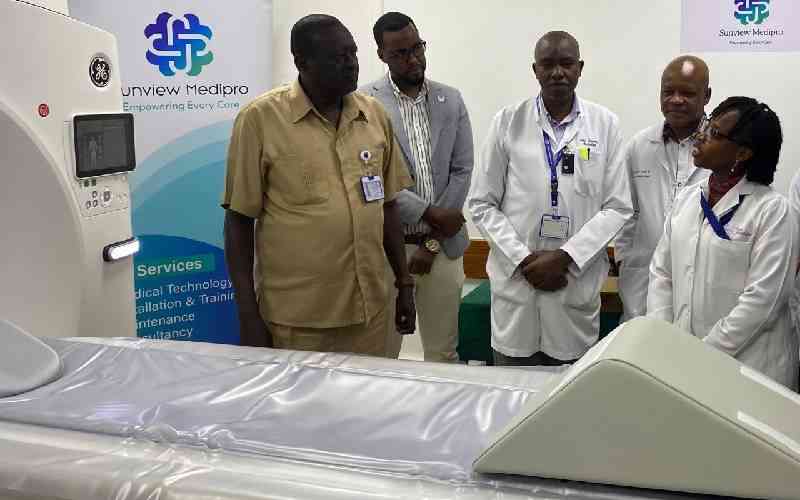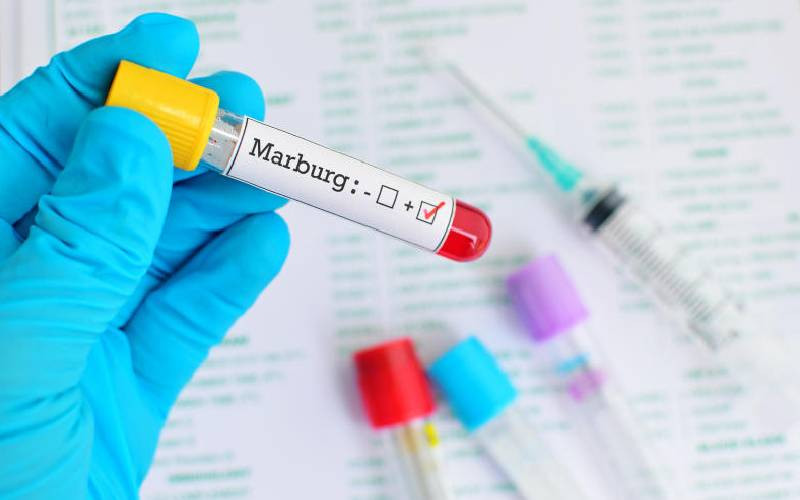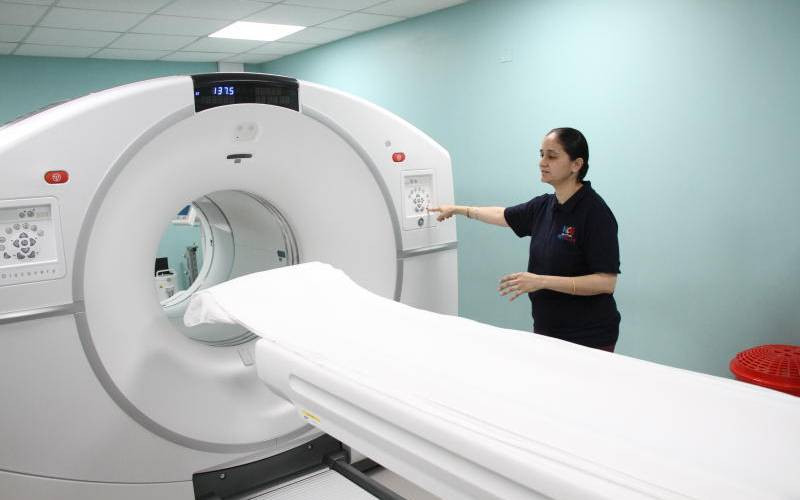
The fight against cancer in the country has received another major boost after Nairobi West Hospital announced that it had started the local manufacture of radioactive isotopes.
This is after acquiring the Cyclotron 11 MeV machine from China.
The hospital comes third after Kenyatta University Teaching, Referral and Research Hospital (KUTRRH) and Aga Khan Hospitals, which acquired the machines in March 2021 and December 2015 respectively.
The radioactive isotopes are used as a tracer for cancer in patients and to monitor the remission or progression of cancer in the patients.
“We acquired the machine in May and started production of radioactive isotopes on May 15. This is expected to significantly reduce delays in imaging services and save thousands of lives lost annually to late-stage diagnosis,” said Dr Solomon Mutua, Head of Oncology at the Nairobi West Hospital.
The announcement was made when the hospital convened a one-day symposium on nuclear medicine and molecular imaging themed "Molecular Frontiers: The Convergence of Imaging, Therapy, and AI,".
- Stage 4 cancer but still standing strong: Eunice Mwende's life after terminal diagnosis
- Kenyan doctors perform rare heart procedure
- New hope for sickle cell warriors as Kisumu pioneers advanced treatment
- Tax tobacco more to raise funds for cancer care, lobby groups plead
Keep Reading
It gathered leading experts and innovators from across the globe to explore transformative advancements in medical imaging and targeted therapies.
The event was held also in collaboration with United Imaging, Longevous Beamtecha and featured a dynamic program of expert-led sessions.
Topics ranged from radiation safety and artificial intelligence in PET/CT imaging to cutting-edge applications in oncology and cardiology.
The acquisition of the cyclotron machines is another milestone for the hospital, which in March last year installed an AI-enabled PET/CT scan.
A Positron Emission Tomography (PET) scan is a highly advanced imaging technique that allows doctors to check for diseases in the body precisely.
Dr. Mutua explained how this advanced imaging technique enables more precise disease staging and treatment planning than traditional machines.
“The digital PET/CT scan has revolutionised cancer diagnostics. It detects metastases with far greater accuracy than conventional scans, significantly improving patient outcomes. Right now we can generate the nuclear medicine to enable us to scan patients using the digital PET scan,” said Dr Mutua.
He added: “And this is important because it increases our ability to serve our patients well because it will enable us to stage cancers better, detect cancers better in patients and also enable us in their treatment and also in their follow-up of cancer patients.”
Compared to how they used to do it using Computed tomography (CT) scans and now, he said the difference is accuracy especially when a doctor is dealing with cancer and he or she wants to use every edge that you can get.
"For lung cancer, basically PET scan has given us quite a great advantage because our aim as doctors, and healthcare practitioners is to make sure that we give the best to our patients. Back in the day, we were missing a lot of lesions especially when cancers are spread," said Dr Mutua.
He added: "But now the accuracy, usually in science language we talk about the sensitivity and specificity, you will find especially when you are looking at the cancer of the lung with CT scans, sensitivity and specificity is in the 70s and 60 percentages, that means it is 60 to 70 per cent accurate when compared to the PET scans but with digital PET scans you are talking over 90 per cent of accuracies."
The doctor said they have two ongoing areas of research including how to escalate the radiation dose to areas that need more dose in what they call dose painting and adaptive therapy.
Delivering the keynote address, Prof. Abdulrazak Shaukat, Principal Secretary of, the State Department for Science, Research and Innovation, reiterated the government’s strong support for such collaborations.
He acknowledged the critical role of innovations like cyclotron deployment and AI-enabled PET scan service at institutions such as The Nairobi West Hospital in elevating the national healthcare system.
“These advancements are essential to our fight against cancer and chronic diseases, and are integral to the success of our universal health coverage goals,” said Prof. Shaukat.
Dr Kibet Shikuku, Deputy Medical Director at The Nairobi West Hospital said there is a lot to be done in the utility of technology's elements not only to identify the disease but also to treat it at a personalised level.
He emphasised the need for partnership with different players outside Kenya to learn from them and scale up care in the country.
Dr Yang Du, Technical Director at Longevous Beamtech, emphasised the strategic role of Chinese cyclotrons in isotope production.
His presentation emphasised the urgent need for locally driven solutions to enhance radiopharmaceutical self-sufficiency, reducing reliance on imported isotopes that often hinder timely cancer diagnosis and treatment.
He underscored the transformative impact of cyclotron technology in boosting regional isotope production capacity- an advancement that could significantly improve access to timely imaging and therapy across East Africa.
 The Standard Group Plc is a multi-media organization with investments in media
platforms spanning newspaper print
operations, television, radio broadcasting, digital and online services. The
Standard Group is recognized as a
leading multi-media house in Kenya with a key influence in matters of national
and international interest.
The Standard Group Plc is a multi-media organization with investments in media
platforms spanning newspaper print
operations, television, radio broadcasting, digital and online services. The
Standard Group is recognized as a
leading multi-media house in Kenya with a key influence in matters of national
and international interest.

